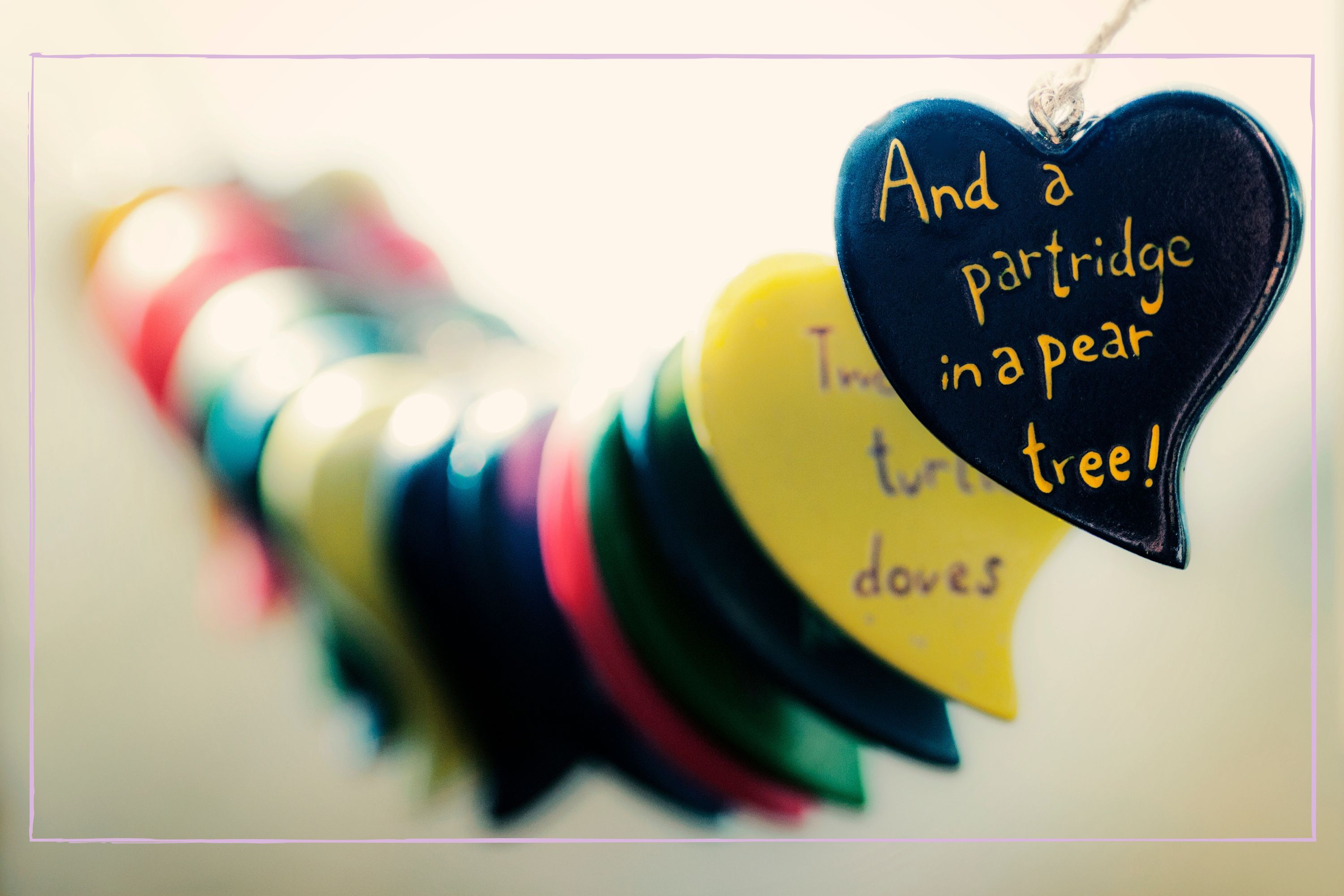When does the 12 days of Christmas start and what are the gifts?
Ever wondered how much it would cost you to buy all 12 gifts?


Parenting advice, hot topics, best buys and family finance tips delivered straight to your inbox.
You are now subscribed
Your newsletter sign-up was successful
You'll probably know the famous Christmas song already but do you know when the 12 days of Christmas start - or how the tradition began?
The event, otherwise known as Twelvetide, begins on December 25 and runs until January 6th. This Christian celebration has been recognised in the UK since 877, when King Alfred the Great prohibited his servants from working during the period. Christians believe that the 12 days signify the amount of time that it took the wise men to travel to Bethlehem after Jesus was born.
When does the 12 days of Christmas start?
The 12 days of Christmas begin on Christmas Day and lasts until January 6 - also known as Three Kings' Day or Epiphany. The period has been celebrated since before the Middle Ages but was updated over time to include prominent figures in Christian history.
Most people know the 12 days of Christmas from the song, which lists different gifts for each day. The first printed appearance of the song was in the English children's book Mirth With-out Mischief, which was published in 1780 - though some of the lyrics were slightly different. Most historians believe the Christmas song started as a memory game.
What are the 12 gifts of the 12 days of Christmas?
- One partridge in a pear tree
- Two turtle doves
- Three French hens
- Four calling birds
- Five gold rings
- Six geese a-laying
- Seven swans a-swimming
- Eight maids a-milking
- Nine ladies dancing
- Ten lords a-leaping
- Eleven pipers piping
- Twelve drummers drumming
But how does the song connect to the origin of the 12 days of Christmas and Christianity? Some historians believe that the '12 days of Christmas' song was used by worshippers to celebrate their religion discreetly, when they weren't allowed to openly practise their faith.
Christians believe that each of the gifts symbolise a different aspect of the Christian religion with the partridge in the pear tree representing Jesus and the two turtle doves signifying the Old and New Testament. The three French hens are Faith, Hope and Charity, while the four calling birds are the four gospels.
The five golden rings are reportedly the first five books of the Old Testament. The six geese represent the six days of creation. The seven swans are the gifts of the Holy Spirit, while the eight maids are the eight blessings given by Jesus in the Sermon on the Mount in the Gospel of Matthew. The nine ladies dancing are the nine different fruits of the Holy Spirit - the ten lords represent the Ten Commandments, the eleven pipers represent the eleven faithful apostles and finally...the twelve drummers drumming are the twelve points of the doctrine in the Apostle's Creed.
Parenting advice, hot topics, best buys and family finance tips delivered straight to your inbox.

What do each of the 12 days of Christmas mean?
- Day One (Christmas Day): Celebrating the birth of Jesus Christ.
- Day Two (Boxing Day or St Stephen's Day): Remembering the first martyr of Christianity, St Stephen.
- Day Three: Celebrates St John the Apostle who is the patron saint of love, loyalty, friendships, authors, booksellers, burn victims, poison-victims, art dealers, editors, publishers, scribes, examinations, scholars and theologians. He also wrote the Book of Revelation.
- Day Four (Feast of the Holy Innocents): The day to remember all the babies killed by King Herod in his attempt to murder baby Jesus.
- Day Five: Remembers the Archbishop of Canterbury, St Thomas Becket, who was murdered because he challenged the king's authority over the church.
- Day Six: Celebrates St Egwin of Worcester who is known as the protector of orphans and the widowed and died in 717.
- Day Seven (New Year's Eve): Pope Sylvester I is celebrated on this day as he saw in the beginning of the Christian Roman Empire.
- Day Eight (New Year's Day): Celebrates Mary, the mother of Jesus.
- Day Nine: Honours two important Christians, St Basil the Great and St Gregory Nazianzen from the 4th century.
- Day Ten (Feast of the Holy Name of Jesus): This day celebrates when Jesus was named in the Jewish Temple.
- Day Eleven: Celebrates St Elizabeth Ann Seton, the first American saint who lived during the 1700s. It also celebrates the Feast of Saint Simeon Stylites, who lived on a small platform on top of a pillar for 37 years to escape unwanted attention.
- Day Twelve (Epiphany Eve): So called because it's January 5, the day before Epiphany.
How are the 12 days of Christmas celebrated?
Much like other seasonal traditions, such as giving chocolate eggs at Easter in the UK, the event is celebrated all around the world in many wonderfully different ways.
For example, in Italy on January 6 - one of the most important days of the celebration - markets are set up in cities around the country selling small presents, snacks, fruits and other festive foods.
In Tudor England, when the tradition first started, people would fast for the four weeks leading up to Christmas and then enjoy 12 days of religious celebrations, feasting and entertainment.
According to PNC financial services groups' annual Christmas Prince Index, to buy all of the gifts in the song would set you back over £36,000. Or if you want to be very specific and work out the total cost of all the gifts when you count each repetition of the song - that's 364 individual items - it would come to a huge £165,188.18 with the latest dollar to pound conversion rates. The most expensive item would be the seven swans at roughly £11,000.
In other family news, if you're wondering where the best places to hide Christmas presents from kids are we have it covered, and why is it called Boxing Day? for the day after Christmas Day.

Selina is a Senior Family Writer for GoodtoKnow and has more than 16 years years of experience. She specialises in royal family news, including the latest activities of Prince George, Charlotte, Louis, Archie and Lilibet. She also covers the latest government, health and charity advice for families. Selina graduated from the University of Sheffield in 2006 with a degree in Journalism, and gained her NCTJ and NCE qualifications. During her career, she’s also written for Woman, Woman's Own, Woman&Home, and Woman's Weekly as well as Heat magazine, Bang Showbiz - and the Scunthorpe Telegraph. When she's not covering family news, you can find her exploring new countryside walking routes, catching up with friends over good food, or making memories (including award-winning scarecrows!)